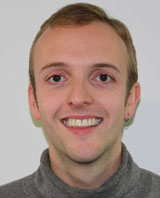"The mind/body split: regulating gendered embodiment in Denmark"
In this talk Chris Dietz will consider how recent changes in government policy on gender recognition in Denmark could be considered through the lens of the mind/body split, with gender identity liberalised in accordance with experience while body modification is restricted and actively questioned in legal understandings and debates.
Info about event
Time
Location
Interacting Minds Centre, Nobelparken, building 1483, 3rd floor, Aarhus University
Organizer

The mind/body split: regulating gendered embodiment in Denmark
In March 2015, early applicants for gender recognition following the L 182 Act on the Central Person Register (Provision of a new person number for people who experience themselves as belonging to the other gender) 2014 were becoming some of the first trans people in Denmark to receive a new social security (CPR) number without having had to prove that they had undergone surgical castration (in the form of removal of ovaries, or penis and ovaries). Yet at almost the same point in time, new guidance authored by the Danish Health and Medicines Authority (Sundhedsstyrelsen), and published by the Ministry of Health and Prevention (Ministeriet for Sundhed og Forebyggelse) in December 2014 - requiring that hormones or surgery may only be administered by a multidisciplinary team of collaborating specialists in psychiatry, obstetrics/gynaecology and plastic surgery, who have special knowledge of transgender patients - formally made access to healthcare increasingly difficult for trans people throughout the country. In this talk I will consider how such changes could be considered through the lens of the mind/body split, with gender identity liberalised in accordance with experience while body modification is restricted and actively questioned in legal understandings and debates.
Chris Dietz is a doctoral researcher at Law & Social Justice, University of Leeds (UK). He is currently a visiting researcher at the Center for Gender Studies (Center for Kønsforskning), University of Copenhagen, while he undertakes fieldwork for his PhD thesis. His research discusses possible alternatives to the UK Gender Recognition Act 2004 on the tenth anniversary of its enactment. Taking gender recognition in Denmark as a case study, Chris’s project considers the allocation of jurisdiction in the governance of transgender citizenship with a view to informing UK policy-making debates and developing a greater understanding of legal embodiment.
